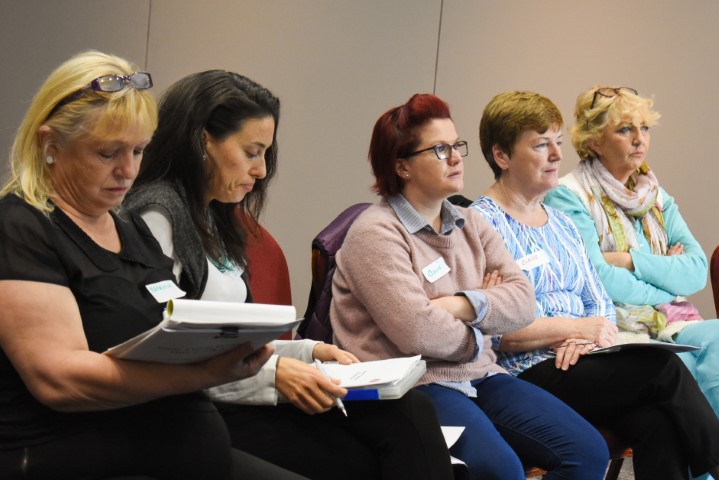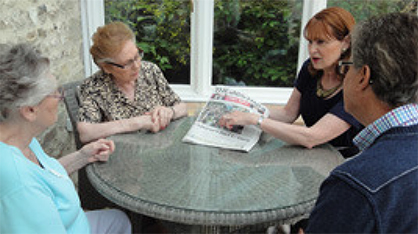This 1-day workshop will give learners an overview of how to deliver Cognitive Stimulation Therapy (CST).

The workshop involves teaching, group exercises, role-play and video observation. Developed by Clinical Psychologist Aimee Spector and supported by an extensive evidence base, CST is an evidence-based therapy for people with mild to moderate dementia, which involves 14 or more sessions of stimulating, themed activities.
This workshop is delivered by Dr Michelle Kelly, Lecturer in Psychology, National College of Ireland and Accredited CST Trainer.
Learning Outcomes
At the end of the course learners will be able to:
- Recognise various explanatory models for dementia and the main therapeutic approaches used in dementia care
- Understand how Cognitive Stimulation Therapy (CST) was designed and evaluated
- Be able to deliver CST to groups of people with dementia, and critically evaluate this process
- Reflect on issues such as the selection of suitable participants, motivating people to participate and managing group dynamics.
Cognitive Stimulation Therapy (CST)
Cognitive Stimulation Therapy (CST) is a non-pharmacological treatment for people who have mild to moderate dementia.
It was developed by Dr Aimee Spector, a Clinical Psychologist and Lecturer at University College London. The therapy involves 14 sessions of themed activities, usually held over a 7 week period. The sessions aim to actively stimulate and engage people with dementia, providing an optimal learning environment and the social benefits of participating in a group activity.
The evidence base
Research studies on CST have had consistently positive findings. CST participants experienced improved cognitive functioning (including memory and orientation, language and visuospatial abilities) and language skills (including naming, word-finding and comprehension). Participants also said that their quality of life improved. Other benefits included the positive experience of being in the group, and improvements in mood, confidence and concentration.
In fact, CST is the only non-pharmacological therapy for people with mild to moderate dementia that’s specifically recommended by the UK’s National Institute for Health and Clinical Excellence.
What happens at a CST session?
Each CST session follows a general theme, with choices of activities in order to cater to the interests of the group. Members give the group a name. Consistency is created between sessions through using the same warm-up activity, a reality orientation board that contains information about the group, and a ‘theme song’. The session themes are:
- Physical games
- Sound
- Childhood
- Food
- Current affairs Faces / scenes
- Word association
- Being creative
- Categorising objects
- Orientation
- Using money
- Number games
- Word games
- Team quiz

Dr Aimee Spector leading a CST session
“I have wanted for over a year to attend this course and it didn’t disappoint!”
Jenny Joyce
“Most beneficial course I have done in years”
Maire Brennan, Nurse in Raheen Community Nursing Unit
“This is a wonderful evidence based intervention course”
Ashley Morgan, Nurse